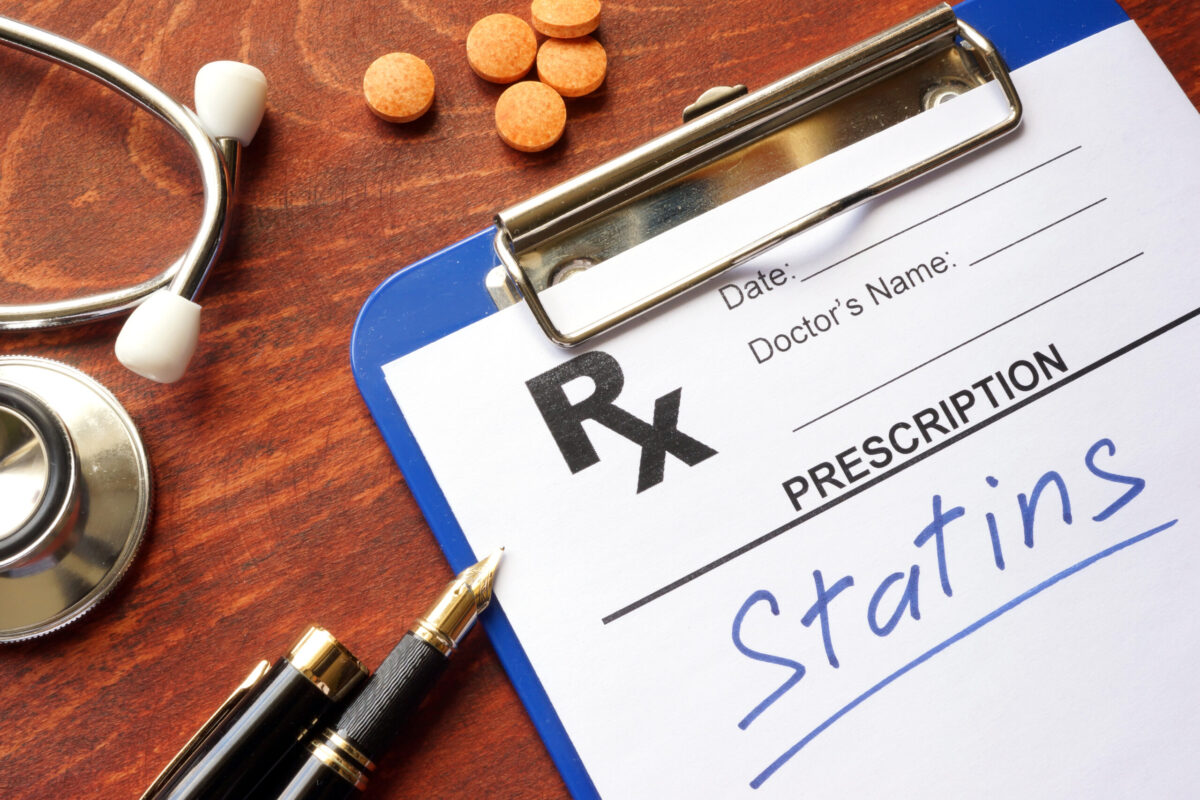More than 200 million people take statins to improve their heart health. While statins are most often prescribed to lower blood cholesterol, they’re being used more widely today to treat diabetes and help people who are at risk of plaque buildup.
But how do statins really work? WellTuned spoke with Dr. Ian Hamilton, medical director at BlueCross BlueShield of Tennessee, to find out.
It is important to understand cholesterol first
Dr. Hamilton: Statins are medications that lower cholesterol. To understand how they work, you must understand how cholesterol works.
Cholesterol is a fat-like substance that exists in your blood. Your body needs cholesterol to build new cells and make hormones, and it makes as much as you need. But you also get cholesterol from foods that are high in sugar, saturated fats and trans fats.
If you end up with too much cholesterol in your blood, plaque can build up. That narrows the arteries around your heart and other organs, making it hard for normal blood flow to take place. This hardening of the arteries (atherosclerosis) can cause chest pain, blood clots, inflammation, heart attack or stroke.
Cholesterol 101: Signs, symptoms and how to control it
How do statins work?
Dr. Hamilton: Statins are lipid lowering agents that work in several ways.
First, statins block the protein your body needs to make cholesterol. That helps lower “bad cholesterol,” or LDL (low-density lipoprotein), which carries fat from the liver all over the body.
The second thing statins do is stabilize plaque. Atherosclerotic plaque does 2 bad things:
- It narrows the arteries around the heart and other organs so less blood can get through.
- It can also rupture, and when that happens, the plaque is freed into the bloodstream.
When plaque gets in your blood, it flows downstream and can lodge in smaller blood vessels that are responsible for blood flow to other organs. Eventually, that can cause chest pain, heart attack, stroke or episodes where the brain doesn’t receive enough blood (transient ischemic attack). If we can’t eliminate the plaque, the next best thing to do is to stabilize it, and statins can help do that.
Finally, statins may help with plaque regression. A small percentage of patients see atherosclerotic plaque decrease while using statins.
Who can benefit from using statins?
Dr. Hamilton: Statins are used in a lot of different situations. For example, the current recommendation is that all people with diabetes be placed on statins because it can lower cholesterol if it’s high, which it frequently is. Even if a person with diabetes doesn’t have high cholesterol, it can help stabilize plaque or cause it to regress (in that small number of cases).
In general, statins help people who have:
- High cholesterol, or elevated LDL
- Diabetes
- Organs that are likely to be affected by plaque hardening
The latter includes people who’ve had a heart attack or stroke, but also people with conditions such as peripheral arterial disease (narrowing of vessels that carry blood from the heart to the legs) or renal artery stenosis (plaque buildup in the kidneys).
What side effects of statins should people be aware of?
Dr. Hamilton: The most common side effects are headache and nausea, which typically aren’t serious. Less common side effects to be aware of are:
1. Liver dysfunction
Elevated liver enzymes can be diagnosed by a simple blood test, which your provider should schedule soon after you’re put on statins.
2. Muscle cramps
Statins can have some muscular effects that you’ll feel as cramping. It’s rarely serious and typically fixed by lowering the dose or changing to a different statin.
3. Muscle injury
In rare cases, muscle reactions go beyond cramps and injure the muscles. This causes rhabdomyolysis, or the death and release of muscle protein into the bloodstream. If this happens, your provider will stop statin use immediately.
Anything else you need to know if your doctor prescribes statins?
Dr. Hamilton: Make sure your physician knows all the other medications you’re on, including over-the-counter drugs and supplements. That’s key because certain drug interactions can interfere with your metabolism or other processes in your body.
Also, make sure your provider knows if you’re pregnant, or if you have kidney or liver impairment or disease, which requires extra care with statin dosage.
Any lifestyle changes you should make while taking statins?
Dr. Hamilton: Don’t drink grapefruit juice. Statins are broken down by an enzyme that naturally reduces the amount of the drug that enters your bloodstream. Grapefruit juice contains compounds that stop this enzyme from doing its job, which can result in more of the drug being absorbed than you need. That can make statins powerful or even toxic in rare cases.
Anything else people need to know about statins?
Dr. Hamilton: In the U.S., I think a lot of the time we’d rather take a pill to fix a problem than change our daily lives. But cholesterol can be lowered significantly by making dietary changes. I always suggest making those changes before you start taking statins, or at the least while you’re on them. Cholesterol is a health problem where a few changes to your daily life can make a big impact.
Fat facts: Decoding the difference between mono, poly, trans & saturated fats
More from Dr. Hamilton & WellTuned
- 6 tips for preventing a second heart attack
- Why a heart attack may look different for women
- Heart disease doesn’t always have a pattern
Get more information about specific health terms, topics and conditions to better manage your health on bcbst.com. BlueCross BlueShield of Tennessee members can access wellness-related discounts on fitness products, gym memberships, healthy eating and more through Blue365®. BCBST members can also find tools and resources to help improve health and well-being by logging into BlueAccess and going to the Managing Your Health tab.


